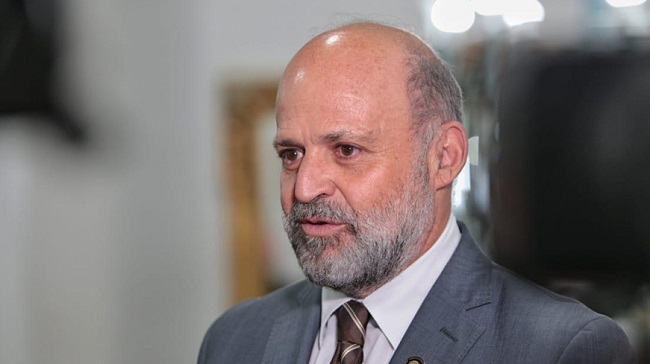The Global Environment Facility’s governing body will meet from June 14 to 18, 2021 to consider $340 million in new funding to enable developing countries to increase their climate resilience and keep advancing environmental protection and renewal, through and after the COVID-19 pandemic.

It will be the 60th meeting of the GEF Council, which has met twice a year since the multilateral fund was created three decades ago in 1991, and the 30th of the Least Developed Countries Fund (LDCF) and the Special Climate Change Fund (SCCF). Like the past two Council meetings, this gathering will occur virtually because of the ongoing coronavirus outbreak that has killed more than 3.7 million people worldwide.
GEF CEO and Chairperson, Carlos Manuel Rodriguez, noted before the meetings that many developing countries had shown impressive resolve in continuing to prioritise environmental action over the past year, even in extremely difficult conditions.
“I am humbled by the commitment and perseverance we have seen by our partner governments to keep prioritising environmental issues through the pandemic, and to raise collective ambitions to put our planet on a healthier path,” Rodriguez said. “I truly believe we are defeating the odds to build momentum for a green, blue, clean, and resilient recovery, and I look forward to continuing to work together toward the change the world needs.”
In their gathering, representatives of the GEF’s 184 member governments will consider $281 million for developing countries’ environmental initiatives plus an additional $60 million for climate change adaptation in the world’s most vulnerable countries through the LDCF.
They will be joined by the heads of the five international environmental conventions that the GEF financially supports – on biological diversity, climate change, desertification, chemicals, and mercury – as well as representatives of the 18 official partner agencies who implement GEF-supported projects in collaboration with local authorities.
Given that the developing countries eligible for GEF grant financing are especially vulnerable to the negative effects of climate change, the Council meetings are expected to focus significantly on ways to bridge the funding gap for climate resilience, including through the commitment of $60 million new financial support specifically for Least Developed Countries.
Delegates will also review the GEF’s operational record and results, discuss an innovative new approach to collaboration with the Green Climate Fund, and hear from the Scientific and Technical Advisory Panel and Independent Evaluation Office, all the while looking ahead to the GEF-8 funding cycle which runs from July 2022 to June 2026.
The GEF and LDCF/SCCF Council meetings will be preceded by Civil Society Consultations focused on the opportunities for civil society, indigenous peoples, and local communities to further enhance climate change adaptation in places where such investment is most urgently needed, including and especially in Least Developed Countries.
The $281 million trust fund work programme is the second-to-last under the GEF-7 replenishment cycle and spans 92 countries, including 30 Least Developed Countries and 35 Small Island Developing States. It includes 36 projects related to international waters, chemicals and waste, biodiversity, climate change, and land degradation.
The new projects are expected to benefit more than 18 million local people in project areas, including women, and to generate global environmental benefits beyond national borders. Three GEF-supported programs – on e-mobility, chemicals, and artisanal mining – are also poised for expansion to new countries under the work programme.
Another set of projects, valued at $60 million and focusing specifically on LDCs, will also be considered by the LDCF/SCCF Council.
These include four climate adaptation projects to be financed by both the GEF trust fund and the GEF-managed LDCF, which is the only multilateral fund solely focused on helping Least Developed Countries cope with climate change. They are an adaptive agriculture and rangeland rehabilitation project in Somalia; a sustainable land management and climate adaptation project in Timor-Leste; a water sector climate resilience project in Bhutan; and an integrated landscape management and restoration project in Central African Republic.
The LDCF is also proposing projects to support increased climate resilience in Eritrea, Kiribati, and Lesotho. With this set of projects, the dedicated fund supported by donors including Belgium, Canada, Denmark, Finland, France, Germany, the Netherlands, Sweden, the United Kingdom, and the United States will have provided financial support to all Least Developed Countries in the GEF-7 cycle.
One of the two non-grant instrument projects in the GEF work programme relates to climate adaptation – providing blended finance for climate resilience technology through CRAFT, a new fund managed by Conservation International and Lightsmith Group LLC. The other includes the provision of guarantees for the green retrofits of small and medium-sized hotels, in partnership with IFC, a member of the World Bank Group.
